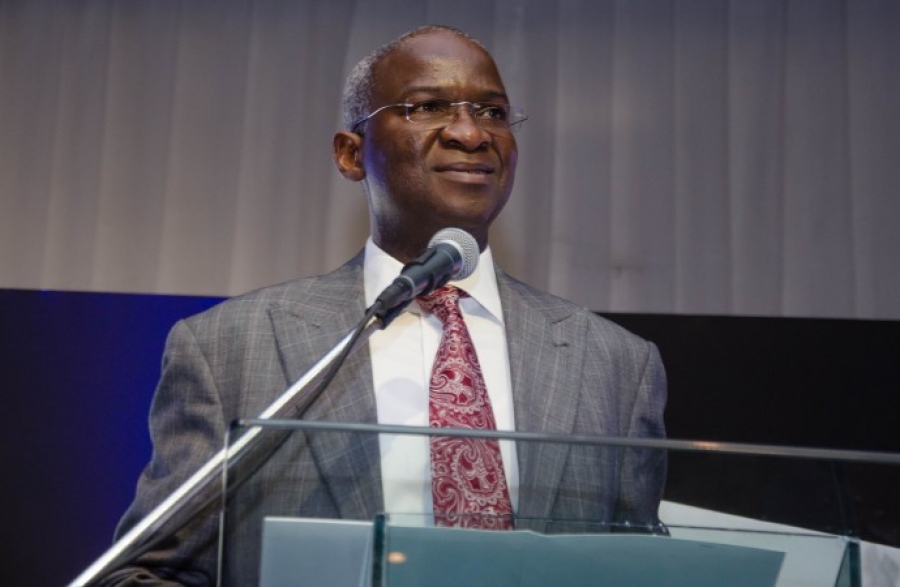- Consumers Can Buy Electricity Directly From Gencos
The Minister of Power, Works and Housing, Mr. Babatunde Fashola, has declared that eligible power consumers are now free to purchase electricity directly from power generation companies.
By declaring eligible customers, the minister has empowered the consumer to buy electricity directly from licensees other than the power distribution companies, a development that the Discos recently opposed.
The Nigerian Electricity Regulatory Commission on Friday stated that Fashola declared four categories of eligible customers in the Nigerian electricity supply industry on May 15, 2017, describing the declaration as a major policy directive in the industry.
In a statement issued in Abuja, NERC said, “The declaration, which permits electricity customers to buy power directly from the generation companies, is in line with the provisions of Section 27 of the Electric Power Sector Reform Act, 2005, whereby eligible customers are permitted to buy power from a licensee other than the electricity distribution companies.
In exercising the power conferred on him by the said Act, the minister directed the commission to permit four categories of customers to buy power directly from licensees other than electricity distribution companies.”
It stated that the first category of eligible customers comprised of a group of end-users registered with the commission whose consumption was not less than two megawatts-hour/hour and connected to a metered 11kV or 33kV delivery point on the distribution network.
These customers, according to NERC, must be subject to a distribution use of system agreement for the delivery of electrical energy.The commission added, “The next category of eligible customers are those connected to a metered 132kV or 330kV delivery point on the transmission network under a transmission use of system agreement for connection and delivery of energy.
“Other category of customers under the declaration consists of those with consumption in excess of 2MWhr/h on monthly basis and connected directly to a metered 33kV delivery point on the transmission network under a transmission use of system agreement.
“Eligible customers in this category must have entered into a bilateral agreement with the distribution licensee licensed to operate in the location for the construction, installation and operation of a distribution system for connection to the 33kV delivery point.”
“The last category are eligible customers whose minimum consumption is more than 2MWhr/h over a period of one month and directly connected to the metering facility of a generation company, and have entered into a bilateral agreement for the construction and operation of a distribution line with the distribution licensee licensed to operate in the location,” the commission added.
NERC stated that the new policy directive would bring into play new and stranded generation capacities, which might be contracted between the generation companies and eligible customers.
According to the regulator, the declaration further provides that at least 20 per cent of the generation capacity added by the existing or prospective generation licensees to supply eligible customers must be above the requirement of the eligible customers.NERC noted that the supply shall be under a contract with a distribution or trading licensee at a price not exceeding the average wholesale price being charged electricity distribution companies by the Nigerian Bulk Electricity Trader Limited.
“The conditions for the declaration of eligible customer is subject to review by the Nigerian Electricity Regulatory Commission from time to time,” the regulator added.
Prior to the latest declaration by Fashola, all electricity consumers in the different categories get their supply from the power distribution companies.
The Discos had condemned the plan by the government to declare eligible consumers, as the spokesperson for their umbrella body, the Association of Nigerian Electricity Distributors, Mr. Sunday Oduntan, argued that eligible customers “can be declared by the minister only when a competitive market exists in the Nigerian electricity supply industry.”
ANED, however, stated that such a competitive market, driven by efficiency, presence and utilisation of industry contracts, was not existing at the moment.
Although the power firms admitted that the minister, under Section 27 of the EPSR Act, 2005, had the authority to determine end-user customers, who then constitute eligible customers, it insisted that Section 28 of the Act required that the Discos must be compensated for any reduction in their ability to “earn permitted rates of return on their assets,” or any inadequacy in their revenues as a result of such determination.
The power firms, therefore, warned that the move would have an effect on consumers.
“What this means is that consumers will have to suffer an increase in their electricity tariff to accommodate this premature declaration of eligible customers,” ANED added.

 Naira4 weeks ago
Naira4 weeks ago
 News4 weeks ago
News4 weeks ago
 Naira4 weeks ago
Naira4 weeks ago
 Travel3 weeks ago
Travel3 weeks ago
 Jobs4 weeks ago
Jobs4 weeks ago
 Naira3 weeks ago
Naira3 weeks ago
 Naira3 weeks ago
Naira3 weeks ago
 Investment4 weeks ago
Investment4 weeks ago






























